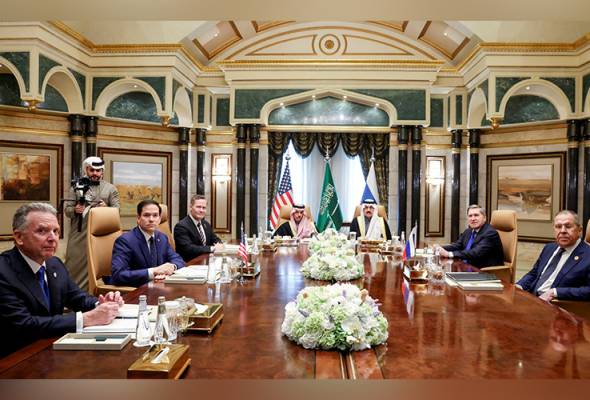Canada Global (Web News) The Trump administration announced on Tuesday that it had agreed to continue peace negotiations with Russia to address the ongoing conflict in Ukraine.
This marks a shift in the U.S.’s previous strategy, which focused on isolating Russian President Vladimir Putin and rallying NATO allies in support of Ukraine’s defense.
The initial round of talks, held in Riyadh, Saudi Arabia, lasted four and a half hours. However, Ukraine was not included, a decision that has sparked criticism.
During discussions, Russian officials reinforced their demands, particularly regarding NATO, making it clear that Ukraine’s membership in the alliance was unacceptable to them.
Ukraine has insisted that any peace agreement must include its direct participation. German Chancellor Olaf Scholz echoed this sentiment, emphasizing that no decisions about Ukraine’s future should be made without its involvement.
Some European leaders have criticized the U.S. for making concessions to Russia, particularly after Washington indicated that NATO membership for Ukraine was off the table and suggested that Kyiv’s military efforts to reclaim occupied regions were unlikely to succeed.
Despite these concerns, U.S. officials, including National Security Adviser Mike Waltz and Secretary of State Marco Rubio, emphasized the need for a peace process that results in a lasting ceasefire, even if it involves discussions on territorial disputes and security arrangements.
However, Russia signaled that it was unwilling to make any concessions, raising doubts about the likelihood of substantial progress.
Although the talks were described as the start of a broader negotiation effort, Ukrainian President Volodymyr Zelenskyy postponed a planned visit to Saudi Arabia, possibly to avoid endorsing discussions that excluded Kyiv.
The diplomatic initiative has caused concern in both Ukraine and European capitals, with fears that the negotiations might overlook Ukraine’s security interests, legitimize Russian aggression, and jeopardize long-term regional stability.


